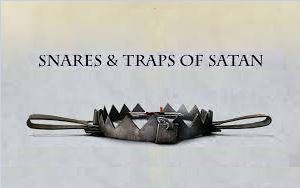Understanding Of Tazkiyah – Acquiring The Friendship of Allah Ta’ala
![]()
The Sharī‛ah is an intrinsic element and the Tarīqah is its inseparable part. Sharī‛ah is knowledge while the Tarīqah entails practising on that knowledge.
The Sharī‛ah refers to the external injunctions, while the Tarīqah refers to the internal injunctions. The body of Dīn is jurisprudence while its soul is Sufism. The body without the soul is useless, and the soul without the body can do nothing.
The Signs of a True Friend of Allāh
The Qur’ān mentions two signs of a true friend of Allāh, viz. he possesses īmān and taqwā. Hakīm al-Ummat rahimahullāh says: “The level of one’s īmān and taqwā will decide the level of one’s friendship with Allāh.”
Types of Friendship
There are two types of friendship with Allāh, viz. (1) general and, (2) special.
1. The first refers to the friendship which is enjoyed by all Muslims.
2. If a person has a higher level of friendship with Allāh ta‛ālā, it is referred to as a special friendship.
General friendship is compulsory while special friendship is desirable. A walī is one who possesses special friendship.
Acquiring Total Friendship
Perfection in īmān and taqwā is a prerequisite for total friendship. What is the level of this? Hadrat Thānwī rahimahullāh said that just as salāh and fasting are compulsory, in the same way, the acquisition of friendship is compulsory is.
How to Acquire Perfection in Īmān and Taqwā
This is dependent on internal rectification. If you attach yourself to the close friends of Allāh ta‛ālā and have each and every fault and defect of yours rectified and corrected, you will acquire perfection in īmān and taqwā.
What is the location of īmān? It is the heart.
What is the location of taqwā? It is the different body parts and limbs, e.g. the heart, the mind, the eyes, the ears, the tongue, one’s private parts, etc.
All the means of preserving īmān are developed from the heart. A Hadīth states that Rasūlullāh sallallāhu ‛alayhi wa sallam pointed towards his pure chest and said that taqwā emanates from here.
If all this is dependent on internal rectification and correction, internal rectification also becomes compulsory.
If a person does not safeguard and protect the lowest level of īmān and taqwā, he will not acquire the highest level.
Types of Actions
There are two types of actions:
1. Commands: salāh, fasting, zakāh, hajj, respect for parents and other injunctions promulgated by Allāh ta‛ālā. In other words, we are ordered by Him to carry them out.
2. Prohibitions: to utter words of unbelief, to commit adultery, to consume alcohol, or to commit any of the other major sins.
It is easier to abstain from doing something. This is why when our pious elders begin their process of instruction and tutoring, they commence with abstention. For example:
If you abstain from speaking lies, what will remain?…truthfulness.
If you abstain from ingratitude, what will remain?…gratitude.
If you abstain from impatience, what will remain?…patience.
Internal Injunctions
Internal injunctions are also divided into two categories: (1) virtues and merits, (2) vices.
1. For example, patience, gratefulness, acceptance of Allāh’s decrees, love for the truth and love for Rasūlullāh sallallāhu ‛alayhi wa sallam are known as merits and virtues. These are compulsory just like the above-mentioned commands.
2. For example, ostentation, pride, conceit, impatience, ingratitude, looking at evil, etc. are vices, and it is compulsory to abstain from them.
Both these are established from the Qur’ān. Just as the external injunctions are compulsory and obligatory, so is the case with internal injunctions. Allāh ta‛ālā says:
He who purified it has indeed achieved his goal. He who leaves it buried in the dust has indeed failed.
In other words, the person who rectified and purified his self has succeeded, and the one who soiled it (with evils and vices) has failed. The external actions are also for the sake of rectifying the internal self. In other words, all deeds are for the perfection of īmān. This shows that the rectification of the heart is required. The heart is the king, while the eyes, ears, tongue and other parts are its slaves. If the heart is pure, it will never go towards evil. Hadrat Hakīm al-Ummat rahimahullāh said: “We witness this by day and night: when the heart is occupied with a particular work or task, all the body parts carry out that task irrespective of whether it is good or bad. Thus, if the heart wants, it can control all the body parts from there. The body parts become righteous when the heart is righteous.”
Discourses of Allah Consiousness
Khitābāt Ihsānī – Shafīq al-Ummat Hadrat Maulānā Shāh Muhammad Fārūq Sāhib rahimahullāh.



